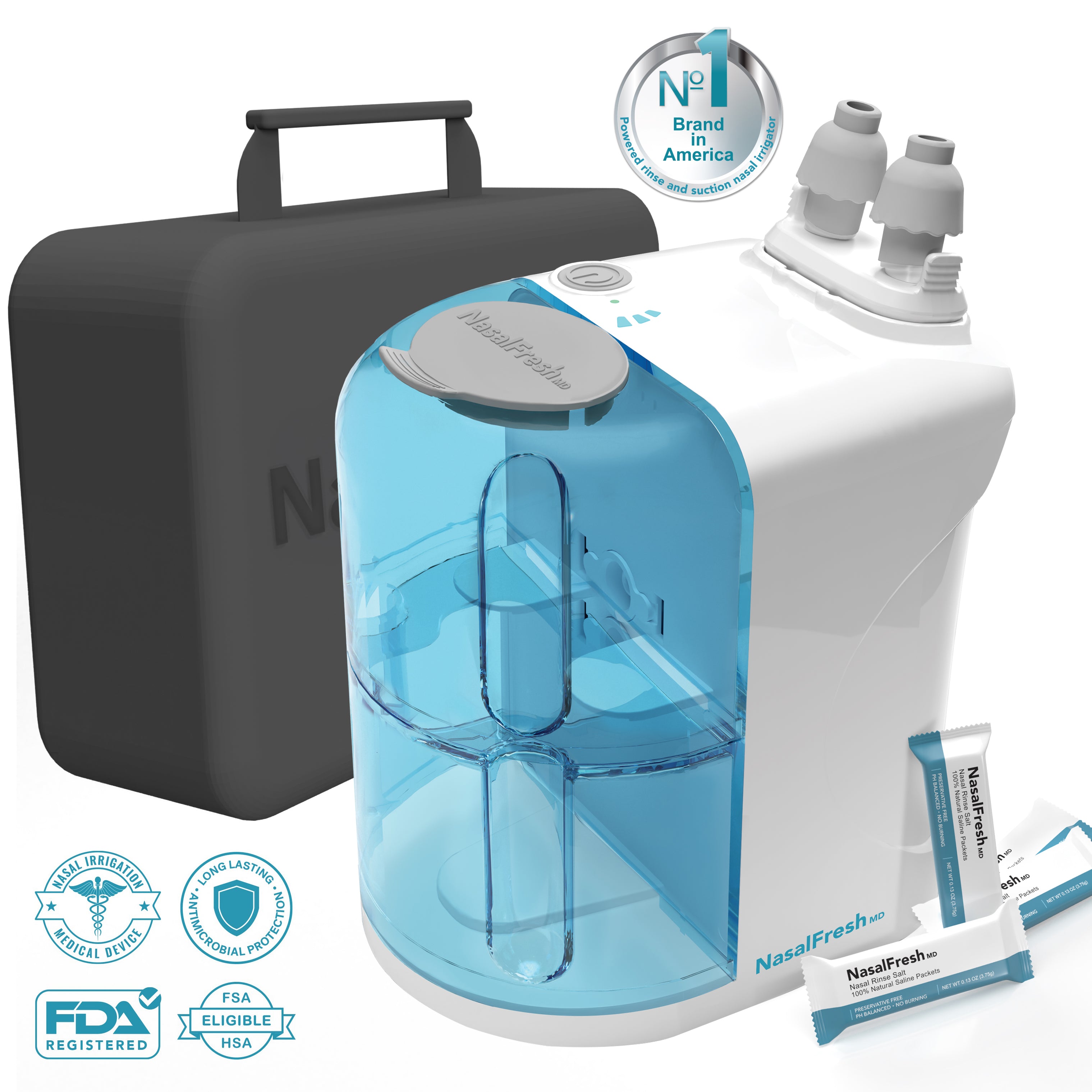How Seasonal Allergies Impact Your Sinuses (& What To Do About It)

As spring blooms around us, many of people find themselves battling the familiar symptoms of seasonal allergies. While sneezing and itchy eyes are common complaints, the impact of allergies on your sinuses can be particularly frustrating.
Let's explore how seasonal allergies affect your sinuses and what you can do to find relief.
The Allergy-Sinus Connection
Seasonal allergies, also known as allergic rhinitis or hay fever, occur when your immune system overreacts to airborne substances like pollen, mold, or dust mites. When these allergens enter your nasal passages, your body releases histamines, leading to inflammation and a host of uncomfortable symptoms.
How Allergies Affect Your Sinuses
- Nasal Congestion: Allergens cause the tissues in your nasal passages to swell, leading to stuffiness and difficulty breathing through your nose.
- Increased Mucus Production: Your body produces more mucus in an attempt to flush out allergens, resulting in a runny nose or postnasal drip.
- Sinus Pressure: The combination of swelling and mucus buildup can create pressure in your sinuses, causing pain and discomfort in your face, particularly around your eyes and cheeks.
- Compromised Sinus Drainage: Inflammation can block the normal drainage of your sinuses, creating an environment where bacteria can thrive and potentially lead to sinus infections.

The Ripple Effect of Sinus Issues
Untreated allergy-related sinus problems can have far-reaching effects on your overall well-being:
- Sleep Disturbances: Congestion and sinus pressure can make it difficult to sleep, leading to fatigue and decreased productivity.
- Reduced Quality of Life: Chronic sinus issues can impact your ability to enjoy outdoor activities and social interactions.
- Increased Risk of Infections: Poor sinus drainage can create an environment conducive to bacterial growth, potentially leading to sinusitis.
Taking Control of Your Sinus Health
While seasonal allergies can be challenging, there are several steps you can take to manage your symptoms and protect your sinuses:
- Identify and Avoid Triggers: Pay attention to pollen forecasts and limit outdoor activities on high-pollen days.
- Maintain a Clean Environment: Use air purifiers and keep windows closed during peak allergy season.
- Stay Hydrated: Drinking plenty of water helps keep your nasal passages moist and promotes proper mucus flow.
- Try Nasal Irrigation: Regularly using an advanced nasal irrigation system like NasalFresh MD rinses away allergens, helping to reduce inflammation and improve sinus drainage.

The Power of Advanced Nasal Irrigation
While traditional methods like manual nasal rinses have been used for years, advanced nasal irrigation systems offer a more effective solution for allergy-related sinus issues. NasalFresh MD, for example, combines dual-powered rinse and suction technology to provide fast, thorough relief from nasal congestion and sinus pressure.

With a system like NasalFresh MD, you can:
- Clear your nasal passages of allergens, mucus, and irritants in just 30 seconds
- Reduce inflammation and sinus pressure
- Improve your overall nasal health and breathing
 With its adjustable settings and comfortable design, NasalFresh MD makes it easy to incorporate nasal irrigation into your daily allergy management routine. The good news is, we're currently offer 25% off on our NasalFresh MD Premium Bundle - limited time only!
With its adjustable settings and comfortable design, NasalFresh MD makes it easy to incorporate nasal irrigation into your daily allergy management routine. The good news is, we're currently offer 25% off on our NasalFresh MD Premium Bundle - limited time only!
Don't let seasonal allergies impact your quality of life. By understanding how allergies affect your sinuses and taking proactive steps to manage your symptoms, you can breathe easier and enjoy the spring season to its fullest. Consider adding an advanced nasal irrigation system like NasalFresh MD to your allergy-fighting arsenal for optimal sinus health and relief.

